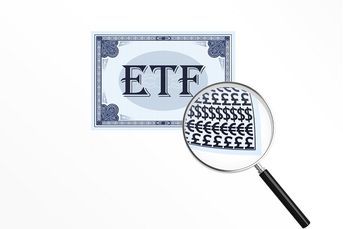Face value: Look inside iShares’ expanded core series
The expansion of iShares Core brings down expense ratios but doesn't eliminate the need for solid due diligence.
BlackRock Inc.’s iShares announced plans to expand its Core series to 10 more exchange-traded funds Tuesday, doubling the total number.
The new ETFs will have expense ratios ranging from 0.09% to 0.14%, depending on the investment style and will allow advisers to build well-diversified yet tactically-tilted portfolios with minimal expenses. The new styles include U.S. dividends, regional specific international (Europe and Asia) and U.S. mortgage bonds.
These ETFs will join existing low-cost core products such as iShares Core S&P 500 (IVV), iShares Core Aggregate Bond (AGG) and iShares Core Emerging Markets (IEMG) that have expense ratios of 0.07%, 0.08% and 0.18%, respectively.
It should not be surprising that the first two have continued to gather assets since rebranding in October 2012 as they are well diversified ETFs that track well-known indexes. However, the success of IEMG has been a pleasant surprise to us.
IEMG tracks a lesser-known MSCI IMI emerging markets index and includes some small- and mid-cap stocks that are not found in iShares MSCI Emerging Markets (EEM) ETF. EEM tracks a different and more well-known MSCI Emerging Markets Index.
IEMG has enjoyed strong inflows throughout 2014 even as the broader emerging markets investment style was out of favor through the first quarter of the year and has only started to gain traction. Indeed, IEMG has seen net inflows of $1 billion year-to-date, according to ETF.com, compared with outflows of $2.7 billion for the more established — and more expensive — EEM. Such strong investor interest has driven IEMG to over $4.6 billion in assets, despite just 20 months of history and provided investors with a tight bid/ask spread of $0.01 that matches EEM.
While the new Core ETFs will indeed have lower expense ratios than many similar ETFs, investors should be mindful that they might not offer the same exposure. For example, iShares Core U.S. Growth, which will soon trade under the ticker IUSG, is currently under iShares Russell 3000 Growth (IWZ). The expense ratio will change from 0.25% to 0.09%, which is of course a good thing for investors.
However, with the name change, we think it will be less obvious that this ETF also provides small- and mid-cap U.S. exposure in addition to large caps. Thus far in 2014, large-cap stocks have outperformed small and mid-cap stocks, though, in the past, exposure to smaller companies has been a positive.
For advisers looking to having pure large-cap exposure, there are currently some good choices within the iShares family. These include iShares S&P 500 Growth (IVW), which has an expense ratio of 0.18%. IVW has climbed 6.7% this year, outperforming IWZ’s 5.1% gain. Meanwhile, relative to the S&P 500 Index, IVW has a three-year beta of 0.94, much lower than the 1.03 for IWZ. S&P Capital IQ operates independently from S&P Dow Jones Indices.
While investors can start to do due diligence on the existing ETFs that are going through a name change and a lower expense ratio, other ETFs will take more time. For example, investors will have an alternative for European exposure through an iShares MSCI based product in iShares Core MSCI Europe (IEUR), which we view favorably. IEUR begins trading later this week with a 0.14% expense ratio. However, this ETF will have different sector and country exposure than the current iShares Europe (IEV), which tracks an S&P index, has over $3.7 billion in assets and has a 0.60% expense ratio. From a country perspective, IEV’s highest exposure is to the UK and France.
We do not believe investors need to wait three years to invest in a passive ETF as they might with an active mutual fund. Yet we think some time is needed to better understand its exposure and to allow for volume to increase and keep bid/ask spreads relatively tight. On our MarketScope Advisor platform, S&P Capital IQ typically begins ranking an ETF within two months of its history.
Todd Rosenbluth is S&P Capital IQ’s director of ETF Research. Twitter: @ToddSPCapIQ
Learn more about reprints and licensing for this article.






